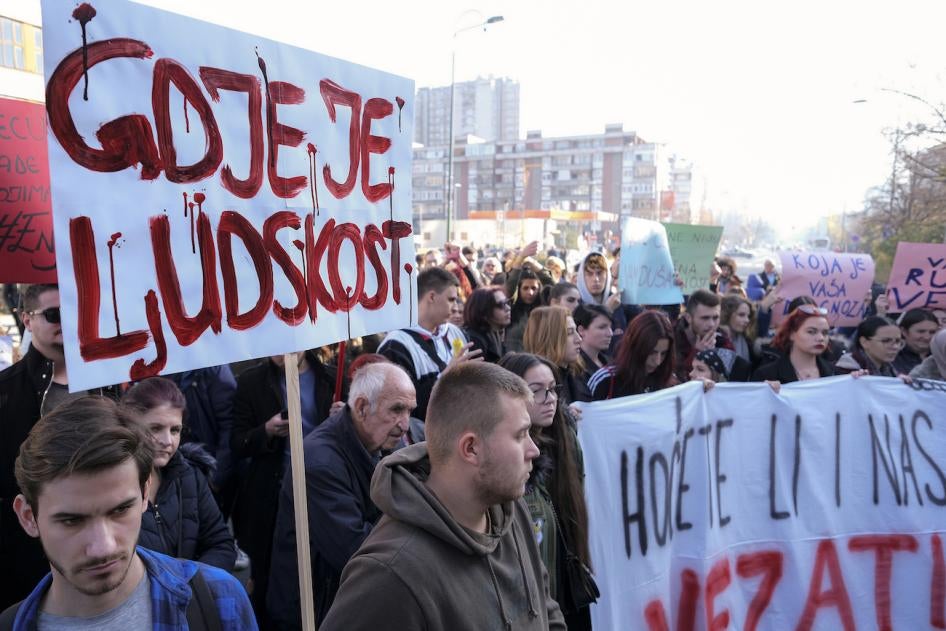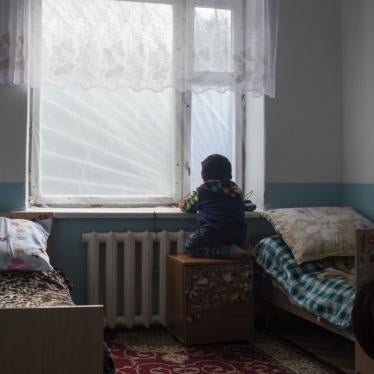Last week Al Jazeera Balkans published a shocking video of a staff member at the state-run institution Pazarić, outside of Sarajevo, hitting and yelling at a young man with a disability. This led to a public outburst in Bosnia –protests were held and the staff member was fired.
But the government’s response to the video is also disturbing. First, the minister of Labour and Social Policy of the Federation of Bosnia and Herzegovina threatened criminal charges, not only against the staff member but also against those who filmed the video and released it to media, in an apparent effort to expose and help bring an end to longstanding abuse in that institution. Threatening with criminal charges may discourage others from publicizing abuses in the future.
Second, the government has failed to tackle the root cause of such abuse: the practice of placing people with disabilities in institutions. In fact, in 2019, footage from the same facility revealed children with disabilities tied to furniture, some with their hands tied behind their backs, others held in straitjackets with their legs tied to a bed or radiator. The Municipal Court in Sarajevo sentenced three former directors to a total of 13-and-a-half years in prison for neglect and abuse.
While public outbursts over egregious rights violations, criminal sentences, and protests are important for accountability, these by themselves won’t end abuse as long as people with disabilities continue to be shunted into institutions such as Pazarić. Institutions create a power imbalance that can easily slip into horrific abuses, including neglect, inhuman treatment, and physical violence. Yet no Bosnian official in their response to the situation in Pazarić has called for an end to the institutionalization of people with disabilities.
The government of Bosnia and Herzegovina, as a state party to the United Nations Convention on the Rights of Persons with Disabilities, and the authorities in the Federation of Bosnia and Herzegovina and Republika Srpska have an obligation to protect people with disabilities from violence and neglect and to ensure their right to live in the community with everyone else. Investing in community living and services will allow children with disabilities to live with their families and adults to be part of their communities instead of behind locked doors.
The cycle of rights violations that have occurred at Pazarić is replicated every day in institutions around the world. As long as people with disabilities remain warehoused, they will continue to be abused.
*This article is part of a series marking the 10th anniversary of Human Rights Watch's Disability Rights Division. Over the past decade, we have advocated for an end to the institutionalization of people with disabilities around the world.










